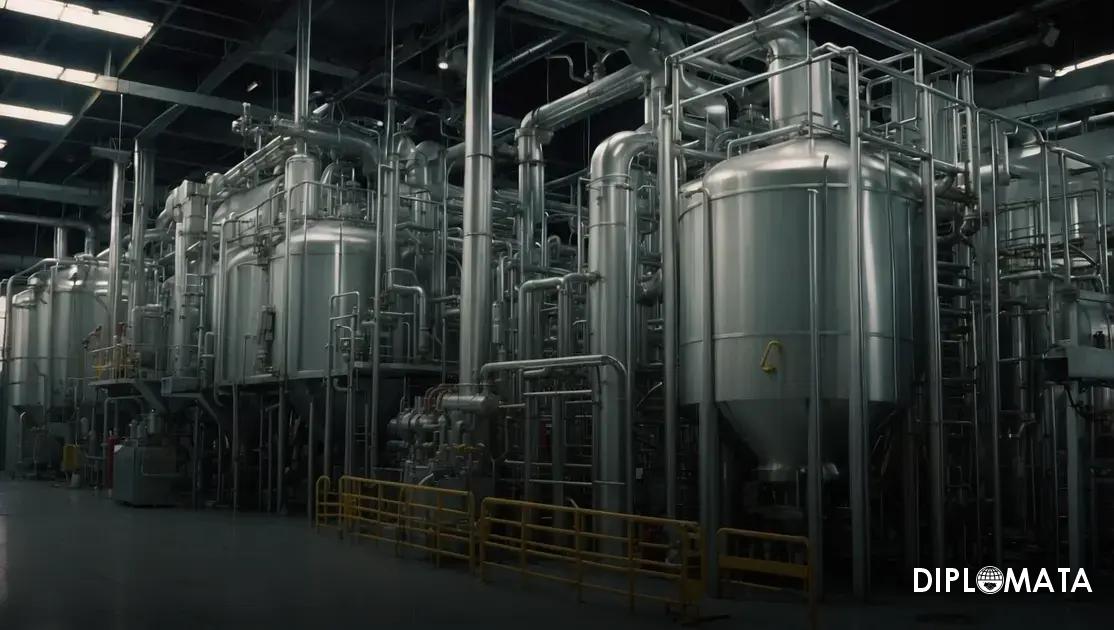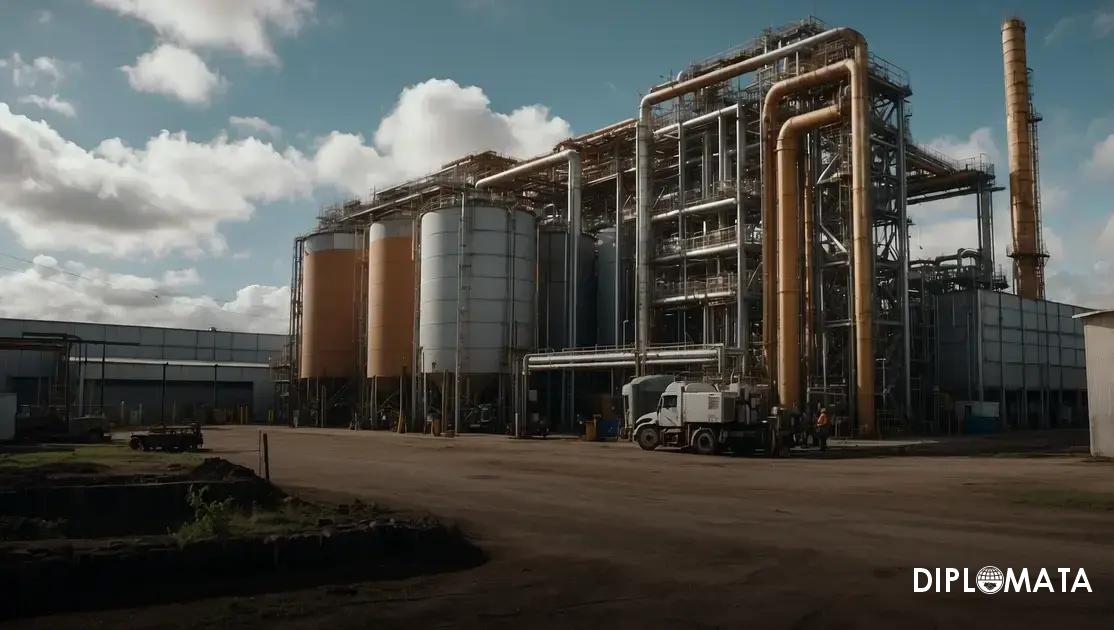How to interpret quality certifications for chemicals? Understanding these certifications is vital for companies seeking reliable suppliers in the chemical industry.
How to interpret quality certifications for chemicals? This is a crucial question for companies and industries looking for trustworthy AMINAS suppliers. In this post, we will unravel the significance of various quality certifications and how they can impact your purchasing decisions. From ISO standards to safety regulations, you’ll learn what these certifications mean and why they matter.
Join us as we explore the key indicators of quality in chemical products, ensuring you make informed choices that enhance your business’s safety and efficiency.

In an increasingly regulated world, understanding quality certifications for chemicals is vital for industries sourcing chemical products. These certifications not only ensure compliance with safety standards but also enhance trust between suppliers and customers. But how exactly should one interpret these certifications? This guide aims to demystify the process, enabling businesses to make informed decisions.
Understanding the Basics: Key Terms and Concepts in Quality Certifications
Before diving into the interpretation of certifications, it’s essential to grasp the foundational concepts. Quality certifications in the chemical industry signify that a product meets certain safety and performance standards. Common certifications include ISO 9001, CE marking, and REACH compliance, each governed by different regulatory bodies.
ISO 9001 is an international standard focused on quality management systems, while REACH is a regulation from the European Union concerning the registration, evaluation, authorization, and restriction of chemicals. Familiarizing yourself with these terms will lay the groundwork for understanding their importance in chemical sourcing.
Why Quality Certifications Matter: The Benefits for Industrial Suppliers
Quality certifications provide numerous benefits for companies sourcing chemicals. Firstly, they enhance product safety by ensuring that all chemicals meet stringent standards. This compliance is crucial for industries such as pharmaceuticals and food production, where safety is paramount.
Additionally, certifications facilitate smoother regulatory compliance, reducing the risk of penalties. They also foster trust in supplier relationships, as certified suppliers are often perceived as more reliable, leading to better market positioning.
Evaluating Quality Certifications: Key Criteria for Selection
When selecting suppliers based on their quality certifications, consider the following criteria:
- Credibility of the Certifying Body: Research the organization that issued the certification. Reputable bodies, such as ISO or ANSI, are more trustworthy.
- Relevance to Specific Chemicals: Ensure the certification is applicable to the chemicals you are sourcing. Not all certifications cover all products.
- Interpretation of Documentation: Learn how to read and understand certification documents to verify their validity and relevance.
Step-by-Step Guide: How to Interpret Quality Certifications for Chemicals
To effectively interpret quality certifications:
- Read Certification Labels: Start by examining the label on the chemical product. Look for the certification mark and related information.
- Verify Authenticity: Cross-reference with the certifying body’s database to confirm the certification.
- Understand the Implications: Research what the certification entails regarding product quality and safety standards.
Advanced Insights: Best Practices for Working with Certified Chemical Suppliers
Building a successful partnership with certified suppliers requires strategic engagement. Here are some best practices:
- Negotiate Wisely: Use your knowledge of certifications as leverage during negotiations.
- Foster Long-Term Relationships: Aim for partnerships that extend beyond single transactions, ensuring ongoing compliance and quality assurance.
- Regular Audits: Conduct periodic evaluations of supplier compliance to maintain standards.
Common Pitfalls: Mistakes to Avoid When Interpreting Quality Certifications
Be wary of these common mistakes when interpreting quality certifications:
- Overlooking Expiry Dates: Certifications can expire. Always check the validity of a certification.
- Assuming All Certifications Are Equal: Not all certifications carry the same weight. Understand the differences.
- Neglecting Documentation: Always request and review certification documents from the supplier.
Conclusion
Understanding how to interpret quality certifications for chemicals is crucial for industries committed to safety and compliance. By familiarizing yourself with key terms, evaluating certifications critically, and avoiding common pitfalls, you can enhance your supplier relationships and ensure the highest standards for your products. Start leveraging this knowledge today to make informed sourcing decisions.
Our Expertise in Quality Certifications
With over 20 years in the chemical industry, Diplomata Comercial stands out as a leading manufacturer and supplier of quality chemical products. Our specialization in glycerin manufacturing and impeccable management practices position us as a trusted source for understanding how to interpret quality certifications for chemicals.
Our Location: Av. Ipanema N° 165 – Empresarial 18 do Forte, Barueri – SP. CEP: 06472-002
Frequently Asked Questions
What do quality certifications for chemicals indicate?
Quality certifications for chemicals indicate that the product meets specific standards for safety, purity, and performance. These certifications are typically issued by recognized organizations and ensure that the chemicals have been tested and evaluated according to established guidelines.
How can I verify the validity of a chemical's quality certification?
To verify a chemical's quality certification, check the issuing organization’s website for a validation tool or database. You can also contact the organization directly to confirm the certification and its details, ensuring that it is current and relevant.
What are some common quality certifications for chemicals?
Common quality certifications for chemicals include ISO 9001 (quality management), ISO 14001 (environmental management), REACH (registration, evaluation, authorization, and restriction of chemicals in the EU), and NSF/ANSI standards. Each certification addresses different aspects of chemical quality and safety.
Why are quality certifications important for chemical suppliers?
Quality certifications are important for chemical suppliers as they demonstrate compliance with industry standards and regulations. These certifications enhance credibility, build trust with customers, and can be a deciding factor for buyers when selecting suppliers, ultimately impacting business relationships.
How do I choose chemicals based on their certifications?
When choosing chemicals based on their certifications, review the specific certifications relevant to your application and industry. Ensure the certifications align with safety, environmental, and quality standards required for your use. Additionally, consider the reputation of the certifying body.





